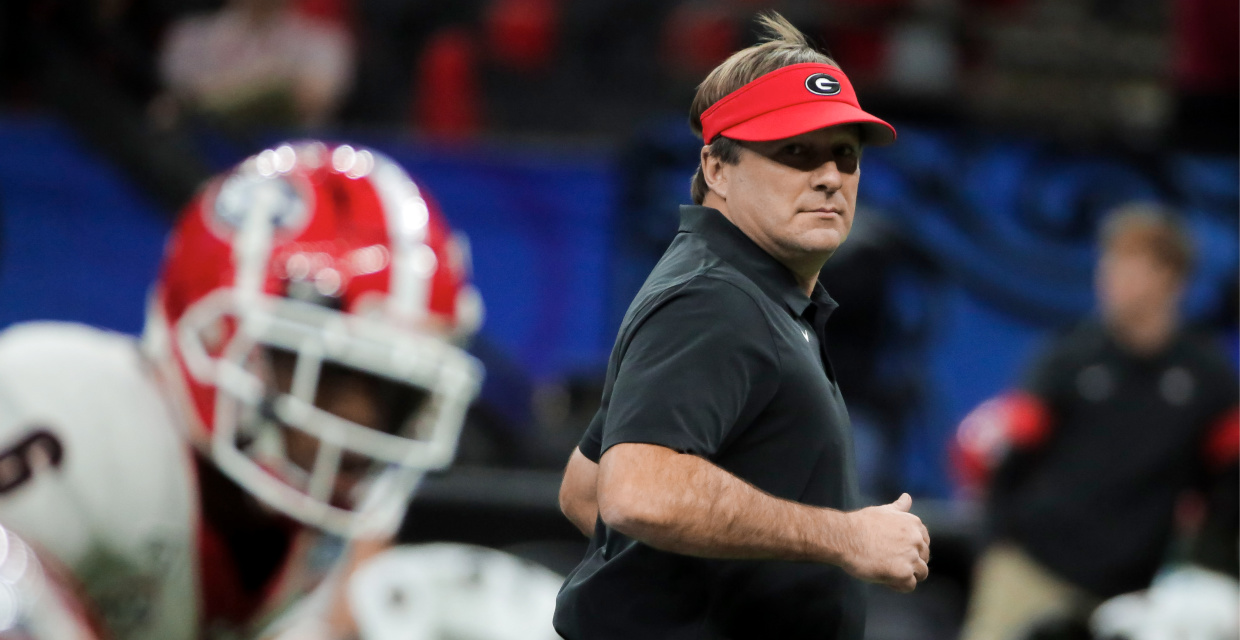Report: Georgia Bulldogs Pay $10,000 Fine, Face Recruiting Restrictions After NCAA Violations
The Georgia Bulldogs football program has been penalized by the NCAA after committing five recruiting violations, resulting in a $10,000 fine and multiple recruiting restrictions. The violations, which were self-reported by the university, highlight the ongoing challenges college programs face in maintaining compliance with NCAA rules while aggressively pursuing top talent.
Details of the NCAA Violations
According to reports, the violations occurred over a period of time and involved various infractions related to recruiting. While the NCAA has not disclosed the full details of each violation, sources indicate that they included improper contact with recruits, impermissible benefits, and unauthorized recruiting practices.
The violations were discovered through routine compliance checks, and Georgia took immediate action to address the issues. The school has cooperated fully with the NCAA’s investigation and has already begun implementing corrective measures.
Penalties and Recruiting Restrictions
In response to the violations, the NCAA has imposed the following penalties on Georgia’s football program:
- $10,000 Fine – The school has agreed to pay a financial penalty as part of the sanctions.
- Reduced Recruiting Days – Georgia will face limitations on the number of days coaches can recruit off-campus.
- Decreased Official Visits – The number of official visits allowed for prospective student-athletes will be reduced.
- Limited Contact with Recruits – Stricter guidelines have been placed on how and when Georgia coaches can communicate with recruits.
- Additional Compliance Training – The coaching staff and recruiting personnel will undergo enhanced compliance education to prevent future violations.
These restrictions could impact Georgia’s ability to recruit at the same level as in previous years, particularly in an era where NIL (Name, Image, and Likeness) deals and transfer portal movements are already reshaping college football recruiting.
Georgia’s Response to the Sanctions
Georgia’s athletic department released a statement acknowledging the violations and reaffirming its commitment to compliance.
“We take NCAA compliance very seriously and hold ourselves to the highest standards. Upon discovering these infractions, we worked closely with the NCAA to ensure transparency and accountability. We accept the penalties and will continue to educate our staff and student-athletes on the importance of following recruiting rules,” the statement read.
Head coach Kirby Smart also addressed the situation, emphasizing that while the violations were unintentional, they must be taken seriously.
“As a program, we strive to do things the right way. We take pride in the integrity of our recruiting process, and we will learn from this. Our focus remains on building a championship-caliber team within the guidelines of the NCAA,” Smart said.
Impact on Georgia’s Recruiting Efforts
Georgia has consistently been one of the top recruiting programs in the country, landing elite talent year after year. However, these sanctions may pose short-term challenges:
- Reduced Face-to-Face Time with Recruits – The limitation on off-campus recruiting days could make it harder for Georgia to establish strong relationships with prospects.
- Fewer Official Visits – With a restricted number of visits, the coaching staff will have to be more strategic in selecting which recruits to bring to campus.
- Competitive Disadvantage – Other top programs may use Georgia’s violations as a negative recruiting tool against them.
Despite these hurdles, Georgia’s reputation and recent on-field success should help minimize the impact of the penalties in the long run.
Broader Implications for College Football
Recruiting violations are nothing new in college football, but they have taken on greater significance in the modern era. With NIL opportunities and the transfer portal reshaping the landscape, the NCAA has been more vigilant in enforcing recruiting rules.
Georgia is not the first powerhouse program to face penalties, and it certainly won’t be the last. Other major programs, including Alabama, Ohio State, and Michigan, have also dealt with NCAA scrutiny in recent years.
This case serves as a reminder that even the most successful programs must remain diligent in their compliance efforts. The NCAA continues to adapt its rules, and schools must ensure they are staying up to date with the latest regulations.
Looking Ahead
While the penalties are a setback, Georgia is expected to remain a dominant force in college football. The Bulldogs have a strong infrastructure in place, with elite coaching, top-tier facilities, and a national championship pedigree.
Moving forward, Georgia’s compliance department will take additional steps to prevent future infractions. This includes increased monitoring of recruiting activities, more frequent compliance training for staff, and stricter internal guidelines.
As the Bulldogs prepare for the upcoming season, the focus will shift back to the field. Despite the recruiting restrictions, Georgia remains one of the premier programs in the nation and will continue to compete for championships.
Conclusion
The Georgia Bulldogs football program has taken responsibility for its recruiting violations and accepted the NCAA-imposed penalties. While the $10,000 fine and recruiting restrictions present challenges, the program remains well-positioned to maintain its status as a national powerhouse.
With continued success and a renewed emphasis on compliance, Georgia can move past this setback and continue building on its legacy. The lesson from this situation is clear: even the best programs must be vigilant in ensuring they stay within NCAA guidelines, as the consequences of violations can have lasting effects on recruiting and team development.
